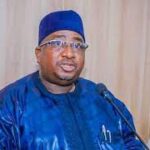But whether it’s a white or boldface lie, all these fibs harm our health. Researchers discovered that people who lie less experience better physical and mental health than those who commonly bluff.
“If I could establish a link between better health and lying, maybe people wouldn’t [lie so much],” says Anita Kelly, a professor of psychology at the University of Notre Dame.
As an expert in secrecy, Kelly had known that people frequently lie and also value honesty in others. Fascinated by this paradox, she wondered if people could stop lying and how it would impact their health and relationships.
Kelly divided 110 participants, ages 18 to 71, into two groups: a control group, who could go about their lying lives as usual, and a “no lie” group, who were instructed to refrain from all lies, whoppers and white alike, for 10 weeks. Once a week over the 10 weeks, subjects answered questions about their health, sometimes while connected to a polygraph machine. Both groups knew they would be answering questions about the number of white and major lies they told but the no lie group were also instructed not to fib (and they even signed a contract stating they wouldn’t). Being hooked up to a polygraph machine meant the no lie group couldn’t lie about the times they’d, well, lied; if they did lie during the week, they had to admit it (telling no lies has a learning curve; despite best intentions, the no lie group still fibbed).
“The irony is that now that we have more outlets for disclosure [such as Facebook], it forces us to lie more because now people ask really bold questions,” she says.
When people refrained from sharing white lies, weekly they experienced three fewer physical ailments such as sore throats or headaches. And, their minds were at ease — avoiding little fibs led to four fewer reports of mental anguish, such as depression and anxiety.
Giving up a bluffing habit wasn’t easy. The non-liars had to consciously think about what they were saying. When they first tried 24/7 honesty, they still told a few lies a week, but not as many as the control group.
“Depending on the participants, some found it very easy to drop to zero [lies]; some did drop to zero. It still was, on average, one lie in the non-lie group,” she explains.
In her daily life, Kelly tells as few tall tales as possible. She once discovered a dead chipmunk prior to a meeting and she struggled to dispose of it, making her tardy. Because she’s known for her honesty, no one doubted her.
Kelly stresses that not lying doesn’t mean sharing harsh truths — it means telling kind truths or not revealing some information. A kind truth might sound like “I loved how that other dress looked on you,” instead of “you look terrible in this dress.” Participants in the no lie group also avoided exaggerations by changing the subject or not answering questions, politely, of course.
In addition to reporting less anxiety and depression and improved physical health, the no lie group felt happier in their relationships.
“Good relationships have long been connected to good health,” says Kelly. “The bottom line is this is really about the relationships … being caught in these lies is anxiety [producing] because we don’t want to ruin the relationships.”
http://bodyodd.nbcnews.com
 Join Daily Trust WhatsApp Community For Quick Access To News and Happenings Around You.
Join Daily Trust WhatsApp Community For Quick Access To News and Happenings Around You.


